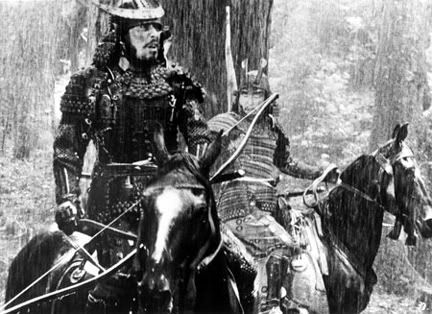Missing the forest, or how experts can be dumb
@
12:09
•
philosophy,
Singapore,
society,
Today
•
0
comments
![]()
If there is something wrong with the method of inquiry that analytical philosophy is partly guilty of, it would be the fragmentary way in which reality is examined. Each field or subject tends to be seen independently, frequently leading to big-picture incoherence.
Moreover, there is often (in less straightforwardly philosophical fields) a tendency towards a strictly realist method, focusing almost entirely on the empirical and taking revealed reality as the only plausible element in discussion. This again leads to incoherence, even where the subject is labelled as 'comparative'.
Now, (on a somewhat ironic note) all this might sound rather abstract and hence obscure. Well, I'll cut to the chase and speak from an example. After all, the empirical does have a substantiating role.
I read, with a measure of bemusement mixed with ruefulness, the 'expert' analyses on the recent trend of casino-themed toys becoming popular in Singapore.
In response to public concern, a few psychologists quoted by Today downplayed the significance of this trend. One compared it to the availability of "toy guns which encourage kids to play shooting and killing games", stating that "it is up to parents to decide what they want for their children".
At first glance, that's a pretty good comparison. Certainly, we can agree that casino-related toys becoming popular does not mean more children will grow up to be compulsive or reckless gamblers, as much as legalising homosexuality does not mean more people will become homosexuals.
However, in this case, that argument is only good as long as it stands alone. I suppose this is where psychologists who examine the individual removed from his/her social context should retire to the backbenches.
Had the toys become popular years ago, those experts would be completely right. But what makes this trend worrying is not some unfounded fear about the toys. Rather, it's the fact that it comes in the wake of the opening of the casino and all the hype that surrounds it. Hence, it's not a question of psychological effect alone; it's also a question of cultural trends.
What is worrisome, therefore, is not that the toys could exert some insidious influence on kids, but that the culture celebrating extravagance could. The toys are merely a vivid manifestation of that culture, a sign of how far down it has crept and become positioned to affect the people's psyche.
Businesses thrive on exploiting opportunities, and social trends generate the latter. Parents don't buy casino-themed toys to teach their kids "the concepts of chance and risk playing" and "the consequences of incurring debt", as one psychologist puts it glibly. After all, as the expert noted herself, more conventional games such as Monopoly could serve that purpose. Parents buy casino-themed toys now because they buy into the hype, one that is reminiscent of Wall Street's extravagantly reckless culture. That's not exactly the best thing to aspire towards, is it?
I think this is one of the instances where science, steeped in its own arcane knowledge, becomes negligent. Reason and science are not synonymous. I've written favourably about scientists (including psychologists), but I have to say that putting your faith in just any form of scientific inquiry isn't prudent either.
Here, I say that it is almost a crime to talk only about trees.

(0) Comments
Post a Comment